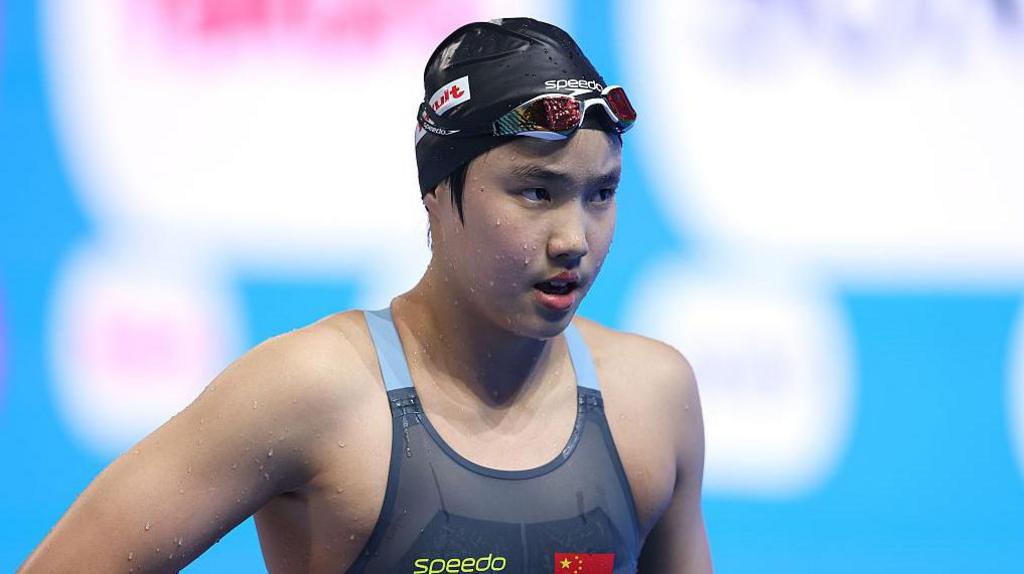### Young Talent Shines at World Aquatics Championships
In a remarkable feat that has captured the attention of the global sports community, Yu Zidi, a 12-year-old talent from China, etched her name in history by becoming the youngest swimmer to win a medal at the World Aquatics Championships. This monumental achievement unfolded in Singapore, where Yu contributed to her nation’s bronze medal success in the women’s 4x200m freestyle relay event. Missing out on the finals but having already participated in the heats earlier in the week allowed her automatic qualification for a medal, making this accomplishment especially noteworthy.
### Setting Records and Breaking Barriers
Yu’s contribution to the Chinese relay team placed them third, trailing behind powerhouse teams such as the United States and the eventual winners from Australia. This marked a significant moment, as Yu became the youngest medallist at a major international swimming competition since Denmark’s Inge Sorensen won bronze in the 200m breaststroke during the 1936 Olympics, just after her 12th birthday. An emotional Yu expressed her feelings following the victory, stating, “It feels quite emotional, it’s a nice feeling.”
As she approaches her 13th birthday in October, her performances have drawn extensive media coverage. However, in addition to her relay success, Yu has shown promising individual skills, coming close to earning medals in the women’s 200m butterfly final, where she finished fourth, and narrowly missing a podium in another event by a mere 0.06 seconds. Earlier in May, Yu also made headlines by setting a world record for a 12-year-old in the 200m individual medley, clocking in at an impressive 2:10.63. Her talents have led to World Aquatics labeling her a “sensation” on social media platforms.
### Controversy Surrounding Young Athletes
Yu’s stunning accomplishments, while celebrated, have sparked a debate about the appropriateness of young athletes competing at such high levels. Under current regulations, competitors at these championships must be at least 14 years old; however, Yu was granted permission to compete after her times met the ‘A’ standard set by the international swimming governing body. This specialized entry raises questions regarding the potential long-term effects of rigorous training on young athletes’ physical health.
Discussions on platforms like BBC Radio 5 Live have featured opinions from former champions such as Karen Pickering and Steve Parry. Pickering raised concerns about the implications of intensive training on young bodies, paralleling her points with the experiences of young gymnasts who often face physical challenges from early pressure to succeed. “What kind of training is she doing?” she asked, highlighting her worry over the long-term impacts of such demands on a child’s body.
In contrast, Parry argued the potential of young athletes like Yu should not be stifled but celebrated, drawing parallels to other notable younger swimmers such as Sharron Davies and Katie Ledecky. He emphasized the importance of mental health and balance in training, arguing that young prodigies need support rather than restrictions. “These young protégés should be celebrated,” he stated, reflecting a more positive outlook on their participation.
### Conclusion
As the discussions around Yu’s early success continue, it becomes increasingly clear that her journey is not just about records or medals but also about the broader considerations of youth athletics in a competitive landscape. With heightened attention on her, Yu Zidi exemplifies both the promise and challenges of nurturing young talent in sports, making her an athlete to watch as she navigates the challenges and opportunities presented by her extraordinary talent. The next chapters in her swimming career are sure to unfold as she grows and develops in the sport, potentially continuing to break records and inspire future generations of athletes.












